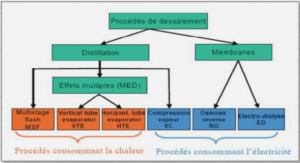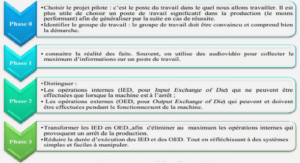POST-COLONIAL AFRICAN LEADERSHIP IN ANTHILLS OF THE SAVANNAH
The Early Independence
Throughout their politics of education, the colonial masters were accustomed to selecting some of the brightest African students and taking them to Europe where they would be opened to a new modern world and to a higher educational training so that they could be back with a colonial allied mindset. In this regard, these sons and daughters of Africa travelled to the European continent in order to broaden their studies in the Western world. And it was from this exposure that they realized that the two continents, meaning Africa and Europe, are equal in reasoning and faith. That is to say both continents had a right to be free and sovereign. None of them was ever meant to dominate the other. In fact, that vision captures the hearts and minds of the selected black intellectuals whose vocations were initially limited to study purposes. Thus, once back at home, they exploited the advantages of their ability to understand the strength and the weaknesses of the colonial masters whom for a longtime had been considered as half-gods. These African intellectuals engaged into the project which consisted in bringing their ideas together and setting clear strategies which will lead to a political independence at the end of the 1950s to the 1960s. Moreover, one can as well mention the brave participation of African soldiers in the Second World War which provoke the breaking of what would be called ‘Le myth du colon’. That myth of the invincibility of the white man which, for centuries, had been injected in the black people‟s minds finally faded away. African people began to realize that Europeans were not extraordinary super human beings, but rather mere and simple human beings just like them. Besides in one of Ngugi wa Thiongo‟s works, namely Weep Not, Child, a character named „the Barber‟, in one of his conversations with his friends, states that: “They are not gods we have thought them to be, we even slept with their women” (Wa Thiong‟o 1964: 32). This statement of the Barber demonstrates the psychological liberation and the raising of awareness of Africans who now boldly challenge the long feared colonial „master‟. So much so that the returning of African soldiers from the war, in which they delivered a brave performance, motivated a sharp stand against the White man who was meant to free African colonies. Panafricanism was another crucial element that had activated the awakening of 8 Africans all around the world. One can named Marcus Garvey who advocated a return to Africa with his decisive slogan „Back to Africa‟. Thus, the need to become totally free and independent obsessed the minds of most of African revolutionaries. The last days of colonialism was also agitated by the Negritude movement. That group of intellectuals who first met in Europe, for a noble reason, contributed highly to the independence of African nations. This elite of writers, throughout their writings, restored the long lost dignity of the black man. In fact,he end of colonialism was stired by so many different factors. Some movements were even more radical in their fighting style for freedom. They adopted violent methods because to them independence had to be acquired by ‘any means necessary’. So, time of enlightenment came at last for African people to take control of themselves, but the mission was not as it seemed to be. The ending period of colonialism was far from being easy for them because of the atrocities some colonies faced during the process. The European colonialists refused to simply give up in some African colonies. So many reasons could justify this attachment of these colonial „masters‟, meaning the Europeans colonizers. One of the main reasons is because of the fact that Africa has always been the hunting ground for Europeans. The continent is abundantly blessed with natural resources. And that was even the very reason why the invasion of Africa by Europeans in broadly worsened the underdevelopment of Africa while improving highly the development of the Western continent. However, after a devoted and persevering commitment, most of the African countries, eventually, succeeded in and became free from the unfair exploited rule of the white people. Then Africans took up the lead by themselves which was the final arrival of a long-awaited independence. Thus, Ngugi and Achebe have explored the aftermath of Kenya‟s and Nigeian‟s Independences, emphasizing strongly on the leadership aspect. Various nationalist leaders have virtually replaced the departed colonialists, maintaining the same old system and making only some few changes. Exploring this further, Ngugi and Achebe alleges that the changes that are made to the former colonial systems suit the people in power but not the masses. There is total despair observed in the Kenyan‟s and Nigerian‟s masses after the national independence.
The Role of Literature in the Process of Decolonization
African literature is a literature which is both oral and written. Today, African literature can be said to cover three periods of times. The first period can be determined as the pre-colonial literature. It is oral in nature, and it is full of lessons and ideas about life, its blessings as well as its consequences. It has various forms such as Oral literature, folk Songs, Folk tales etc. The second period focuses on the novels that deal with cultural nationalism and all the issues that have to do with anti-colonialism. And the third is that of post-independence disillusionment. The 1950s and 60s are marked by the beginning of the novels of cultural nationalism which can be described as the literature of self-assertion. The novelists who started their career in that period used their literary works to promote the image of Africa by correcting some distorted views about the image of the continent. That is an answer to the European elites who have a wrong view on Africa and Africans. The novels of that period as well are anti-colonialist novels as they are a protest against the unhuman policies of the colonial rulers over their colonies. That time is marked by outstanding woks of prominent writers. In this regard, one can list out the famous Things Fall Apart by Achebe. This novel is widely considered as the milestone of African literature. Besides, it helped pave the way for several other African writers. The period that follows the anti-colonial literature can be called the post-independent literature. African writers, especially the novelists, have used many of their works to talk about some political and social experiences of Africa. The novels written by these writers are characterized by issues such as disillusionment and alienation. The works of contemporary African novelists focus on and reveal the social and political problems that are the characteristic of the neo-colonial agenda which is described as a representation of the new form of colonialism. Their works are dominated by their decision to address the realities of the African societies which give ground to the basis of the modern African novel. In this regard, various works can be cited such as The Beautiful Ones Are Not Yet Born by Ayi Kwe Armand, A Man of the People by Ngugi wa Thiong‟o, The Open Sore of a Continent by Wole Soyinka to name but a few. In the colonial period, some Africans who were exposed to western languages began to write in those foreign languages. The first generation of colonial African 10 writers was considered to be imitators of western works. That is to say their writings had no meaningful or purposeful results. They were not writing so as to celebrate the proud past of Africa. They were just mimicking, imitating the white people. The messages about Africa were still orally conveyed when it was about praising the brave past and the victories of African heroes. However, African writers started considering writing as a weapon that could question the negative descriptions and misconceptions of Africa by some Intellectual white people. It is well known that the Europeans, in order to legitimize their invasion in the African continent, had adopted a systematic strategy of distorting the image of Africa first. They purposely created a so-called binary between „Themselves‟ and the „Others‟. According to Europeans, Africa was the continent of uncivilized and barbaric people. They said that Africans had neither values nor a Civilization or whatsoever for themselves. As a results, African people needed to be saved and be brought into civilization for the betterment of the whole world. Among those writers who believed in such an idea, one can list out Joseph Conrad who sadly give a filthy and biased depiction of Africa. In his famous novel, Heart of Darkness, Conrad rejects the particiaption of Africans in human history. He even goes further to label Africa as a Continent without any sort of Civilisation. Neither in the past nor in the present. For him, Africa is synonymous of a heart full of darkness. Therefore, africans needed to be rescue by a potential savior who would take them from darkness to the light. Moreover, Conrad dehumanizes Africans by reducing their religious practices to superstitions. He believes that these religious practices have no reason of being. He does not stop there but goes on questioning away their ability to speak, and depreciates the complex world of africans, which is alien to him, to a single mass of jungle. Indeed, Africans are portrayed, in Conrad‟s novel, as savages not far from monkeys. As he says it: “with any Civilization or languages other than the grunt, with any other occupations besides merging into the evil forest or materializing out of it simply to plague Marlow” (Conrad 1902: 179). This declaration of Conrad eventually agitates the interest of many African intellectuals to take up their pens and respond back in order to restore Africa‟s dignity and pride. Besides Chinua Achebe whose professional career was previously known as a journalist, admits in several interviews that his will of becoming a writer partly comes, partly, from his first reading of Conrad‟s novel Heart of Darkness. This actually triggers the flame in him to produce his novel Things Fall Apar
Independence and the Emergence of a New Leadership
The achievement of independence of many African countries in the 1960s is the result of a long process that began so many years earlier. In Petals of Blood, Ngugi portrays the long and bloody struggle of the Kenya people against the monster of colonialism. He presents the picture of the transformation of Kenya from old system to the new one. He reveals that the attainment of national independence of Kenya involves the sacrifices of a number of people. In this way, the new Illmorog world is born out of the guerilla‟s sacrifices of the old Illmorog world. In fact, Ngugi puts on the surface the flower of Kenya freedom which is made of the „petals of blood‟. Furthermore, in Petals of Blood, Ngugi discloses the tumultuous path of Kenya history in order to introduce the bloody and costy prestation of brave guerilla: the Mau Mau Movement. Through the fictional characters of Petals of Blood, Ngugi creates his own historians who remind the real history of Kenya land. First, are the ordinary people of the novel who, in their songs, poems, stories, saying anecdotes, rememberances, always talk of their heroes such as Dedan Kimathi; one of the heroes of Kenyan history. And secondly, a few local intellectual like Karega, Munira and the lawyer who defy the class bourgeois to join hands with the people. These characters put their learning, their intellect at the service of the people. They are committed to dig out the buried history and resistance of Kenya no matter how hidden it is. So, Ngugi demonstrates, clearly, how independence was costy to some african countries like Kenya whose population had to pay blood and tears to snatch their freedom. However, the real aspect which accelerates independence in most of the African nation was the end of the World War Two. After the war, Africans who became politically more aware, get involved in independence movements to put pressure on colonial powers. They reminded the colonial regime of the promises made to secure their support in the war effort. Therefore, European powers were somehow obliged to give African colonies their independence as quick as possible. Contrary to Kenya, most of the African nations acquired independence under non-violent circumstances. 16 Therefore, right after that period, many of the African countries gained political independence from the European colonial powers. For example: Ghana, Nigeria, Senegal, Uganda, Kenya to name but a few. Thus, ceremonies of independence took place in almost all around African newly independent countries. In each nation, there was a triumphant leadership and a national stadium or public place in a capital city filled with people to show their joy with thousands and thousands of celebrants. Actually, it is reported that people were raising their flag, and dancing in the streets. The ceremony of independence was legitimate occasions for joy and happiness. It announced the end of colonialism and confirmed the great victory of the national movement for liberation in some countries. It was more manifest in countries that shed blood and tears to be able to gain their independence as Ngugi demonstrated in the novel with the case of Kenya. He shows how independence of Kenya has transformed their bad memories of struggle, memories of violence, degradation and hardship, memories of imprisonment and even of torture into images of heroism. Ngugi goes further by describing how Kenya, which is symbolized by Illmorog, passes through a transitional period. The colonial government disappear from Kenya which become independent to build up its own society. Ngugi points out that it is at this time that the western values of the former colonialist are made to be replaced by the African ones. People of Ilmorog, were eager to see the new set up of a total african society in spite of its dark spots. Thus, in the novel, Ngugi offers an interesting picture of the emergence of a new nation revealing the long-awaited transition from old ruling to a new local ruling. In the novel, Ngugi fictionalizes some assemblies under the palabra tree in which illmorogians recall the memories of their heroes‟ past. Clearly, independence is not given on a plate of gold. Its achievement records a lot of sacrifices. But after independence, it became possible to view tears as symbols of sacrifices. It can be said that the ceremony of independence allowed the remembrance of the past of the Mau Mau movement as meaningful. The notion of defeat could be perceived as conflict. And conflict in turn became synonymous of resistance. All of those defeats that Kenyan people lived during colonialism began to seem positive, as moments of resistance leading finally to independence day. Every colonial African country had endured the exploitation and oppression of colonialism. They all, somehow, struggled against colonialism. Therefore, the victory was a pride to all colonized nations. Here is how Ngugi wa Thiong’o pictures the night of 17 independence in one of his novel A Grain of Wheat. Ngugi passionately demonstrates the lovely environment of that particular moment in African history: Kenya regained her Uhuru from the British on 12 December 1963. A minute before midnight, lights were put out at the Nairobi stadium so that people from all over the country and the world who had gathered there for the midnight ceremony were swallowed by the darkness. In the dark, the Union Jack was quickly lowered. When next the lights came on the new Kenya flag was flying and fluttering, and waving, in the air. The police band played the new National Anthem and the crowd cheered continuously when they saw the flag was black, and red and green. The cheering sounded like one intense cracking of many trees, falling on the thick mud in the stadium (Wa Thiong‟o 1967: 88). In this passage, Ngugi describes exactly the events that happens in this particular period. There is excitement and happiness in everywhere. In the same passage Ngugi illustrates another trait that can be noticed among the crowd on the streets. Indeed, Ngugi keeps on describing the various expectations his people show up. He asserts: “Everybody waited for something to happen. This „waiting‟ and the uncertainty that went with it … was a taut cord beneath the screams and the shouts and the laugher” (Wa Thiong‟o 1967: 89). In fact, Ngugi wants to underline that independence does not only mark the end of colonialism. It as well marks the raising of a new continent on the world stage of what Kwame Nkrumah loved to call „the African personality‟. With the passage of the historical era of colonialism, a new historical era is to begin. Africa gets a second opportunity to prove her agency to the advancement of the world. Thus, a brain new leadership emerges to take up the lead of this continent full of history. For this time, Africa is to be led by her own sons and daughters. Besides, Ngugi shows in Petals of Blood, through the voice of Nyakinyua, the degree of exctacy Keyans people reach when they first welcome the news of Uhuru. In her words, Nyakinyua explains that independence is hard to believe over some years ago. It is hard to think that „the black grandson‟ is able to redeem the long lost leadership of his ancestors. The latter had been duped and fooled by foreign white supremacists who covered their ill-will under a so called „civilizing mission‟. So, the long awaited-moment has come.
Dedication |



